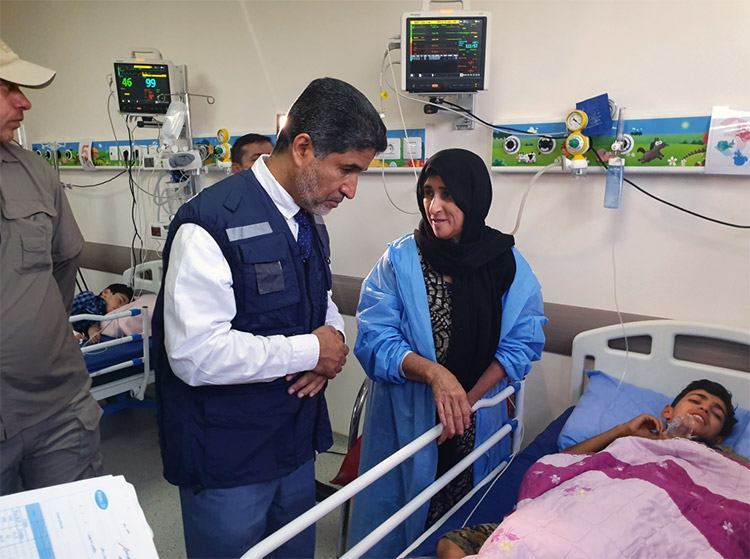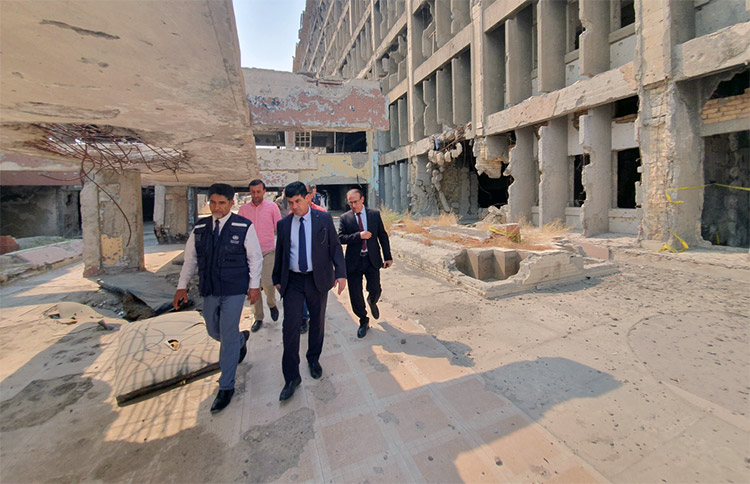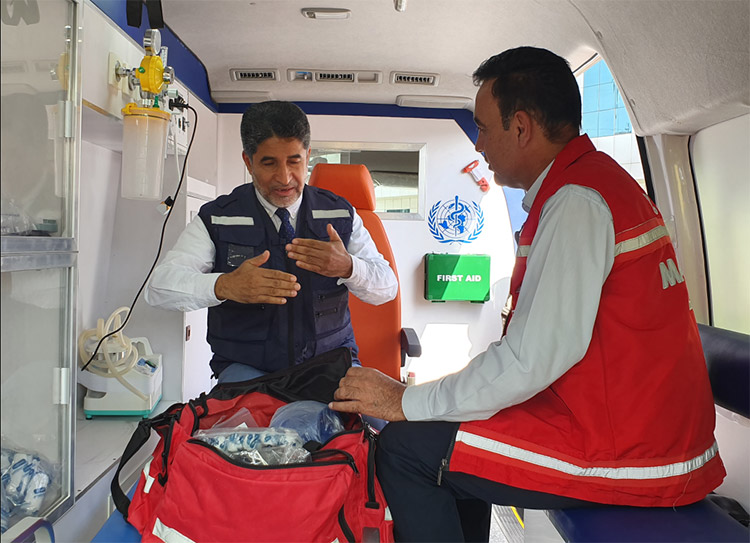Cairo, Egypt, July 24, 2019 :
I recently concluded a four-day visit to Iraq where I saw firsthand a health system transitioning from emergency response to reconstruction, rehabilitation and resilience, while at the same time addressing the health needs of millions of vulnerable Iraqis and refugees.
The country’s new national health priorities, including health financing, environmental health and sanitation, and universal health coverage (UHC), indicate a new chapter in Iraq’s health sector. This means accessible, affordable health services and improved health and well-being for all Iraqis, everywhere throughout the country. In my meetings with His Excellency the Minister of Health of Iraq and his technical team, we agreed that this aspiring goal can only be achieved through strengthened coordination and collaboration netween national health authorities, WHO and all health partners.
During my visit to Baghdad, I visited Al-Zwaya primary health care centre, where I saw the need to strengthen family medicine at the primary health care levels as a key component to achieving UHC.
In Erbil, I met with His Excellency the Kurdistan Minister of Health, the Governor of Erbil, and the Head and members of Parliament. Our discussions enabled me to better understand the need for new health legislation in the Region to ensure better access to quality health services, especially for those in need.
I saw the impact of the work that WHO, health staff and partners are doing to save the lives of the most vulnerable people in this country, including infants and children in Heevi Paediatric Hospital in Dohuk, where WHO supported the establishment of a paediatric intensive care unit and neonatal intensive care unit. I saw babies born as early as 28 weeks surviving in the neonatal intensive care unit and children in life-threatening conditions recovering in the paediatric intensive care unit thanks to the collective support of WHO and donors. In both units, the beds were full of newborn infants and children while others waited to be admitted, highlighting the need for expansion to accommodate more people in need of care.

I also visited WHO’s warehouse in Erbil, which is crucial to supporting the health response in Iraq and fostering cross-border operations in northeast Syria. I applaud this efficient and effective way of resource utilization.
In the WHO-supported primary health care centre located in Sharya camp (which serves the health needs of the displaced persons in Dohuk), I met Iraqis with life-threatening trauma injuries, and saw how moving services closer to people living in remote and low-access areas could save lives at critical moments.
In Ninewa, I visited two field hospitals established by WHO in west Mosul to serve returnees following the destruction of two main hospitals as a result of conflict. I toured the damaged Ibn Sina Hospital and other medical centres to witness firsthand the devastating effects of attacks on health care. Although the field hospitals in west Mosul are overwhelmingly full, they partially cover the current gaps in secondary and tertiary health care services for returnees.

I spoke to health workers in primary health care facilities and field hospitals. Every one of them working in the frontlines is an unsung hero. I applaud their courage, resilience and desire to serve the vulnerable communities during and after the crisis, and now in the phase of transition and reconstruction. Without them, we would not have successfully saved lives in the most critical of times.
As part of WHO’s efforts to strengthen referral services for internally displaced people (IDPs) and refugees, I was happy to hand over two new ambulances to the Ministry of Health, reinforcing our commitment to strengthen the country’s health system. These ambulances will go a long way in enhancing referral services for IDPs and refugees living in Dahuk governorate.

The work that WHO and partners are doing in Iraq reflects the true spirit and values of WHO. My discussions with health cluster partners enabled me to understand different types and interests of stakeholders that WHO work with to achieve its integrated agenda for a better response to emergency operations in the country.
In my meeting with the United Nations country team, we agreed on unifying and coordinating our efforts towards achieving the national health targets in alignment with the Sustainable Development Goals. We also agreed on working together with the government to develop additional strategies to promote behaviour change and strengthen primary health care facilities and their delivery of services as a pathway to achieving UHC.
I left the country with a clear picture of the meaning of a protracted emergency and the role that WHO and other partners play.
In 2019 and beyond, I pledge WHO’s ongoing commitment to strengthening collaboration with national authorities, partners and donors, to build a health system that can deliver health services to all people across Iraq, without facing access restrictions or financial difficulties.





















